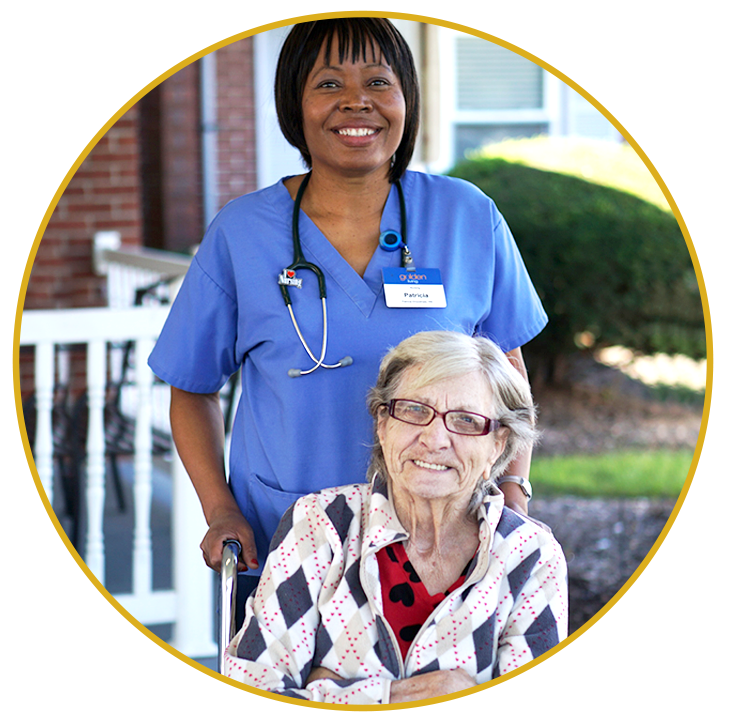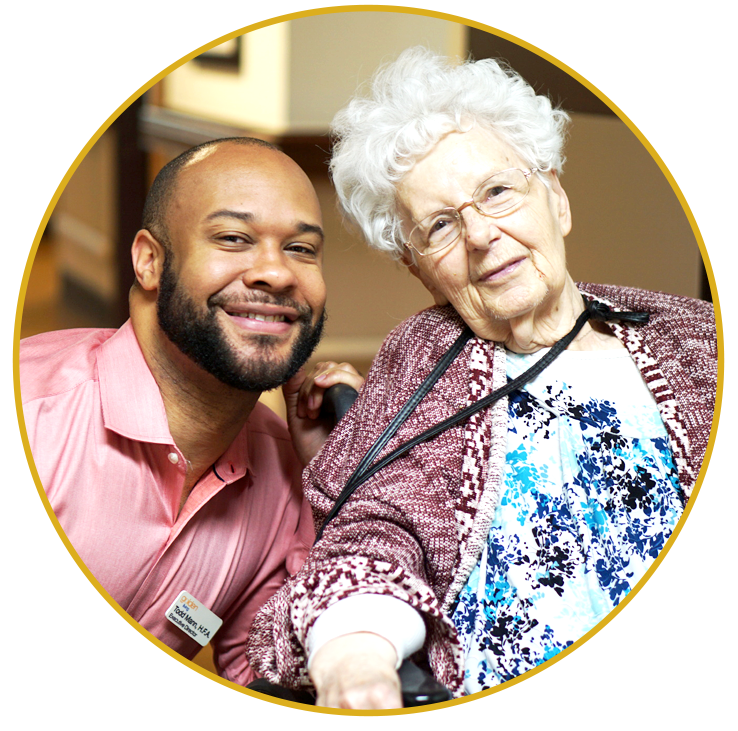Discover a career
with purpose
Your career begins when you find your life’s passion.
What is CareForTheAging.org?
CareForTheAging is an informational resource to shed a light on the wide range of career opportunities available in the long term care profession and inspire those who are looking for a new career opportunity to become a part of this rapidly growing and exceptionally rewarding field.

Our Story
In 2017, the Indiana Health Care Association/Indiana Center for Assisted Living (IHCA/INCAL) launched CareForTheAging.org in response to the needs of our members who often wrestle with caregiver shortages at their skilled nursing and assisted living facilities. The site was developed to showcase the many rewarding career pathways available in long term care and to recruit compassionate and dedicated people to the mission of serving the elderly and disabled in the sector.
In less than two years, the site became a thriving platform connecting job seekers with more than 440 long term care providers across the state of Indiana.
Today, CareForTheAging.org is a multi-state platform bridging the gap between job seekers and long term care providers not just in Indiana, but across 17 states of the country!
Why work in long term care?
While a paycheck may be enough reward for performing a job, your life’s work deserves more. Fulfillment. A sense of purpose. The knowledge that you are making the world just a little bit better.
Service to others meets all those criteria – fulfillment in knowing that you making a difference in the lives of individuals not related to you, purpose in focusing on other people rather than yourself, and often immediate evidence that you are improving the world one smile at a time.
Geriatric caregiving provides even more. You will assist a population that has already done its best to make the world a better place. You will establish long term relationships and enrich your own life as well as others. And you will work in an environment with other compassionate, like-minded people who share your desire to make a difference.

